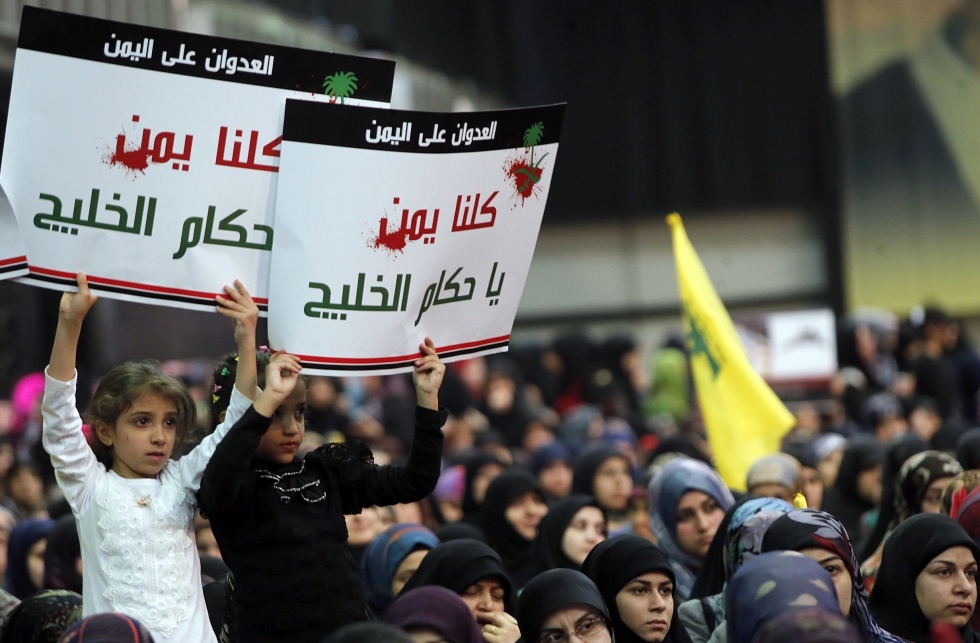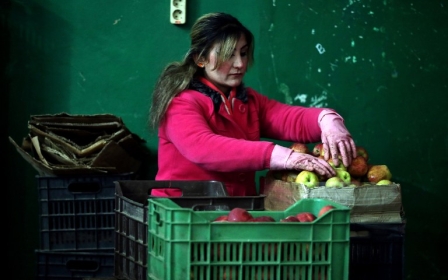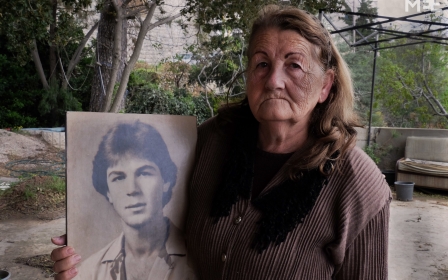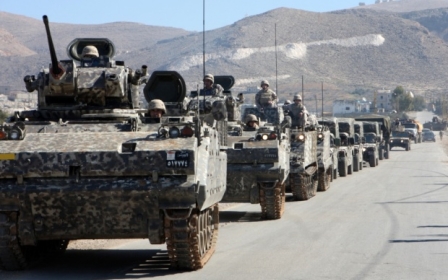Fighting words: Lebanon and the Yemen crisis

Lebanon’s susceptibility to regional turmoil has been established as one the main features of this somewhat young and precarious republic. While it is common for Lebanon to be affected by the Arab-Israeli conflict or by the events of the Syrian crisis, the recent events in Yemen has brought about additional strain to an already volatile Lebanese situation.
Shortly after Saudi Arabia - supported by a wide pan-Arab coalition - launched its aerial military campaign dubbed Operation Decisive Storm against the Iranian-supported Houthi rebels and the forces of former president Ali Abdallah Saleh, local Lebanese factions started their own war of words. However, this fierce exchange of insults has from its onset taken on the surprisingly regulated form of a mutual containment strategy.
Iran and Saudi Arabia’s allies in Lebanon, Hezbollah and the Future Movement respectively, have defended their allies’ actions and exchanged insults that would usually lead to at least minor skirmishes on the streets of Beirut.
Hassan Nasrallah, Hezbollah’s secretary general, unleashed a barrage of criticism against Saudi Arabia’s “aggression on Yemen” declaring that “For the sake of every Muslim country, the Islamic world must tell Saudi Arabia enough is enough.” He would also go on to affirm that it is Hezbollah’s “human, jihadist and religious duty to take this stance and all the sons of this nation must reassess their responsibilities and take the appropriate stance,” virtually affirming his party’s involvement in direct fighting to the side of the Houthi forces.
Nasrallah, however was explicitly clear at the end of his fiery speech that what happens in Yemen stays in Yemen and that he “advises some people in Lebanon to hold their horses…. And just like we did in Syria and before it in Lebanon, we keep our own disagreements within the norms of common decency and we work together to disassociate Lebanon from all the crises”.
Almost instantly, the leader of the Future Movement, former prime minister Saad al-Hariri ridiculed Nasrallah’s attack as a mere “Iranian wailing and crying that we hear from Tehran to Beirut’s southern suburbs”. Hariri also sarcastically reminded Nasrallah “it is Operation Decisive Storm my dear”.
Keeping the Yemen war out of Lebanon
However, Hariri also reciprocated Nasrallah’s call for disassociation, with a similar plea underscoring that “Hezbollah’s continuous escalation will not drag us to stances that would undermine the foundations of dialogue and civil peace,” adding “if their mission is to sacrifice Lebanon’s interests, our duties force us not to be dragged into similar reactions”.
This somewhat choreographed exchange of verbal blows also trickled down the echelons of their political factions. Nouhad Machnouk, the current minster of interior and one of the Future Movement’s delegates to the dialogue with Hezbollah, also rebuked the Lebanese factions who were insulting Saudi Arabia and its monarch and fired back at the supreme leader of Iran, Ayatollah Ali Khamenei and Hezbollah. Interestingly enough, Machnouk’s speech came almost an hour after the conclusion of one of the sessions of dialogue with Hezbollah.
Machnouk’s statements might not sound odd given the already existing tensions between the two factions. However, what stands out is a fairly recent statement by Machnouk that excludes Hezbollah arms from the national security campaign his ministry had launched. Machnouk instead reaffirmed that these arms are part of the national defence strategy as well as being part of the subsequent platforms of the current and previous governments.
Furthermore, while some voices of criticism were directed against Machnouk for his appeasement of Hezbollah’s arms, the Future parliamentary bloc was swift to fully support Machnouk’s statements, thus affirming their desire not to provoke or really confront Hezbollah.
This cold war strategy of containment adopted by both sides is remarkable, as they wage an all-out war of words without resorting to streets fighting or the less violent boycotting of cabinet meetings. Additionally, the cabinet has been functioning rather smoothly for the past few months, going as far as to appoint some of the senior governmental posts, usually a very good litmus test of the internal political accord or lack thereof.
This exchange of insults is very similar to a private school yard fight where the students have an implicit agreement not to punch each other in the face nor to curse each other’s mothers. Yet, this arrangement seems to be working well for Lebanon as this fragile political/security arrangement has withstood a number of challenges, Yemen being the latest.
However, the real question remains how long can these Lebanese/ regional factions shadow box while avoiding getting their hands dirty? More importantly, will Iran and Saudi Arabia allow their patrons to just verbally support their regional war or will they be asked to include Lebanon in the actual fighting.
- Makram Rabah is a PhD candidate at Georgetown University’s history department. He is the author of 'A Campus at War: Student Politics at the American University of Beirut, 1967–1975' and a regular columnist for Now Lebanon.
The views expressed in this article belong to the author and do not necessarily reflect the editorial policy of Middle East Eye.
Photo: Lebanese girls, carrying a placard which reads "We are all Yemen ohh leaders of the Gulf", pose for a picture during a televised speech for Hassan Nasrallah, the head of Lebanon's Hezbollah, in Beirut's southern suburb on April 17, 2015.
Middle East Eye propose une couverture et une analyse indépendantes et incomparables du Moyen-Orient, de l’Afrique du Nord et d’autres régions du monde. Pour en savoir plus sur la reprise de ce contenu et les frais qui s’appliquent, veuillez remplir ce formulaire [en anglais]. Pour en savoir plus sur MEE, cliquez ici [en anglais].





